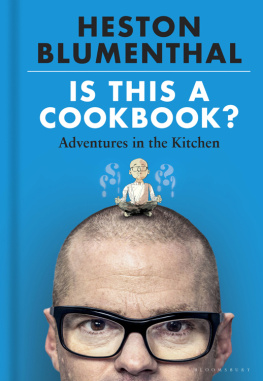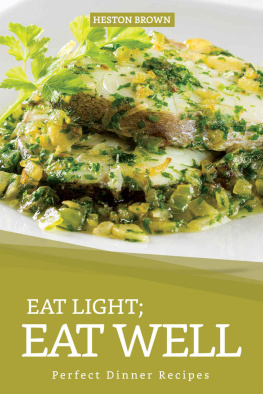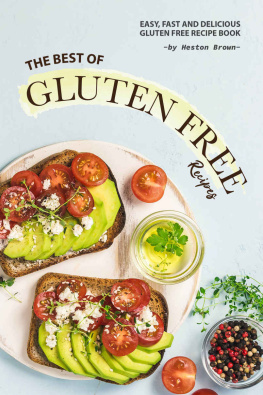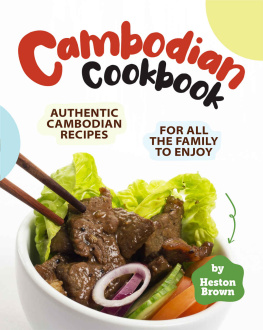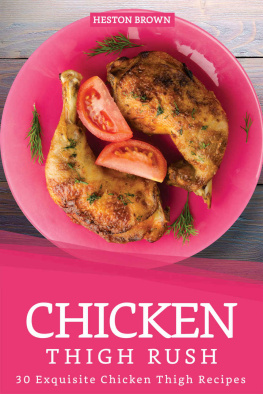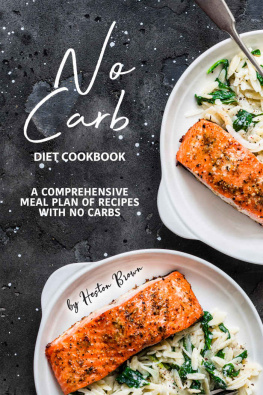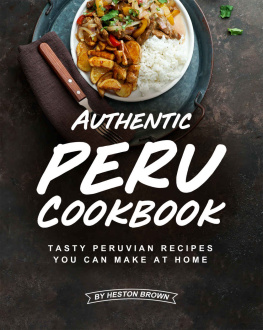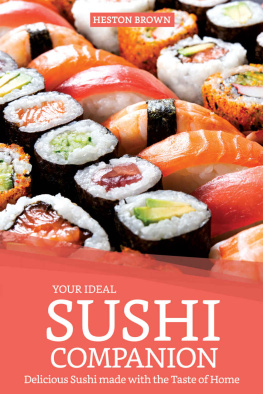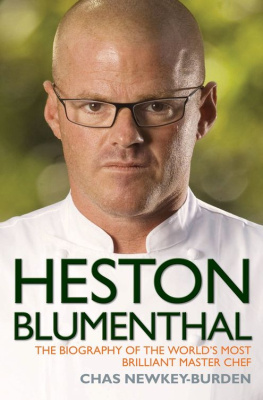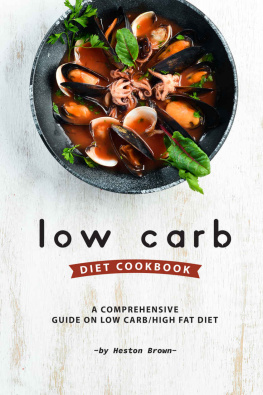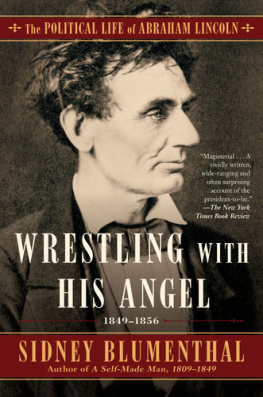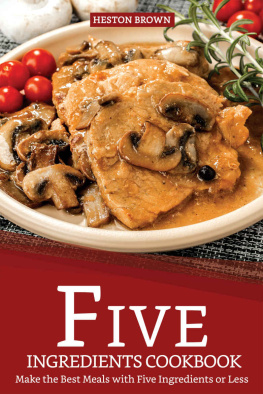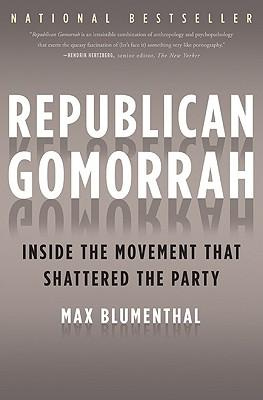Heston Blumenthal - Is This A Cookbook?
Here you can read online Heston Blumenthal - Is This A Cookbook? full text of the book (entire story) in english for free. Download pdf and epub, get meaning, cover and reviews about this ebook. year: 2022, publisher: Bloomsbury, genre: Home and family. Description of the work, (preface) as well as reviews are available. Best literature library LitArk.com created for fans of good reading and offers a wide selection of genres:
Romance novel
Science fiction
Adventure
Detective
Science
History
Home and family
Prose
Art
Politics
Computer
Non-fiction
Religion
Business
Children
Humor
Choose a favorite category and find really read worthwhile books. Enjoy immersion in the world of imagination, feel the emotions of the characters or learn something new for yourself, make an fascinating discovery.
- Book:Is This A Cookbook?
- Author:
- Publisher:Bloomsbury
- Genre:
- Year:2022
- Rating:5 / 5
- Favourites:Add to favourites
- Your mark:
- 100
- 1
- 2
- 3
- 4
- 5
Is This A Cookbook?: summary, description and annotation
We offer to read an annotation, description, summary or preface (depends on what the author of the book "Is This A Cookbook?" wrote himself). If you haven't found the necessary information about the book — write in the comments, we will try to find it.
Is This A Cookbook? — read online for free the complete book (whole text) full work
Below is the text of the book, divided by pages. System saving the place of the last page read, allows you to conveniently read the book "Is This A Cookbook?" online for free, without having to search again every time where you left off. Put a bookmark, and you can go to the page where you finished reading at any time.
Font size:
Interval:
Bookmark:
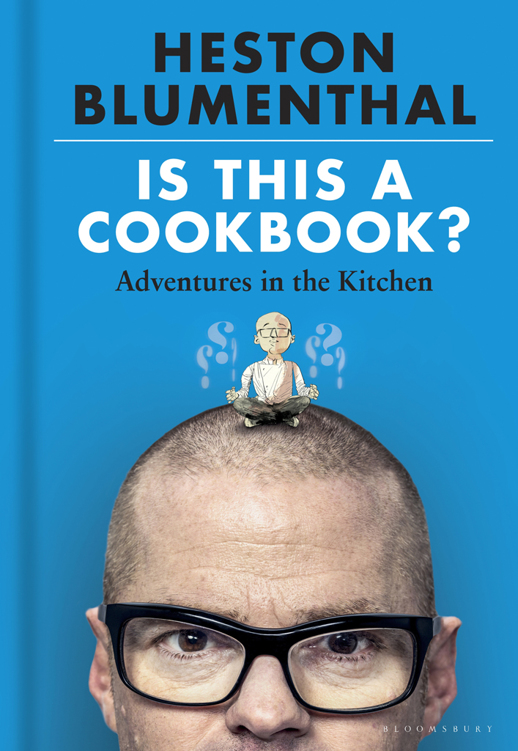
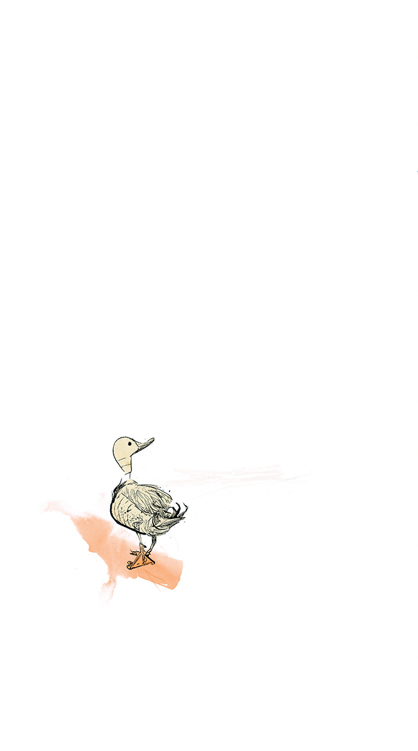
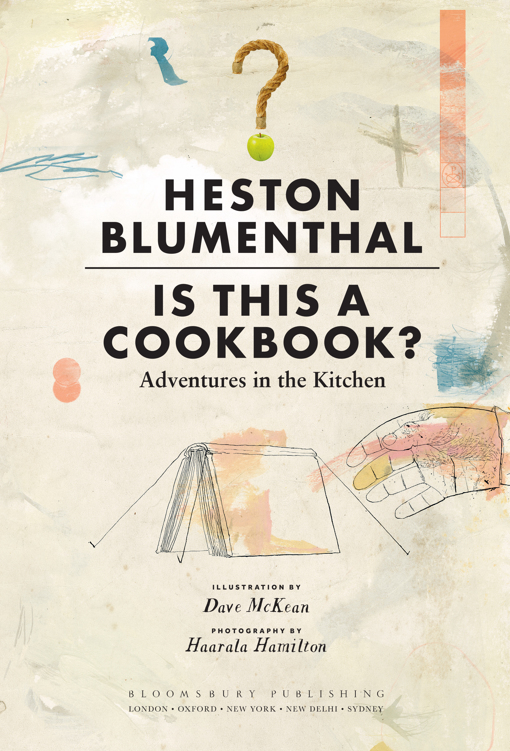 Contents
Contents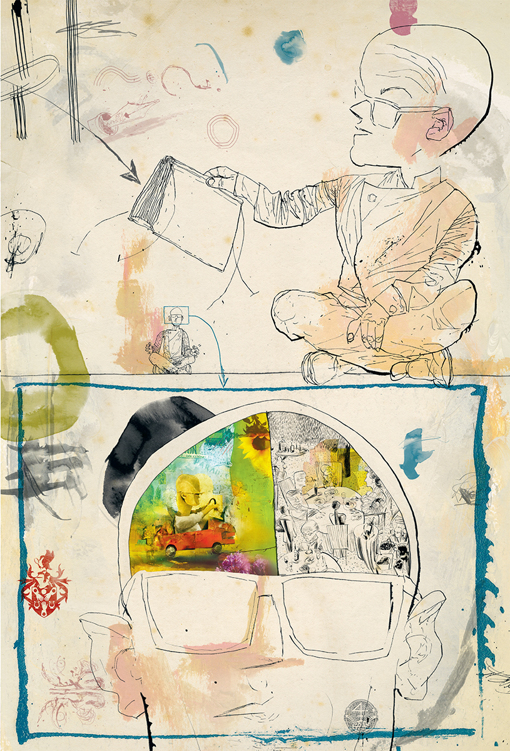 Dedicated to Sir Ken Robinson No man ever steps in the same river twice, for its not the same river and hes not the same man. HERACLITUS I think I can safely say that nobody understands quantum mechanics RICHARD FEYNMAN
Dedicated to Sir Ken Robinson No man ever steps in the same river twice, for its not the same river and hes not the same man. HERACLITUS I think I can safely say that nobody understands quantum mechanics RICHARD FEYNMAN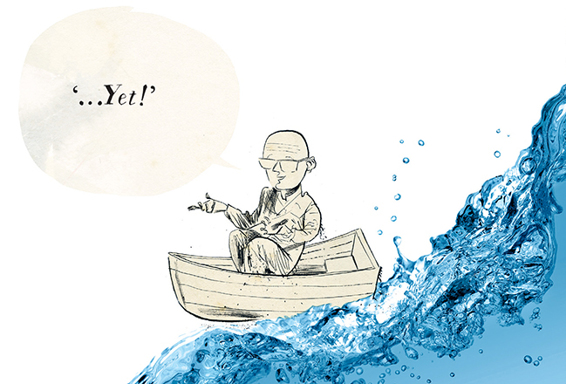
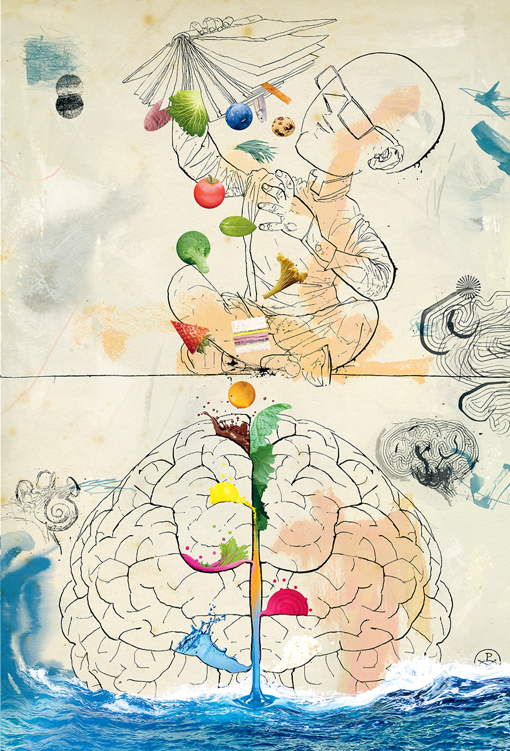
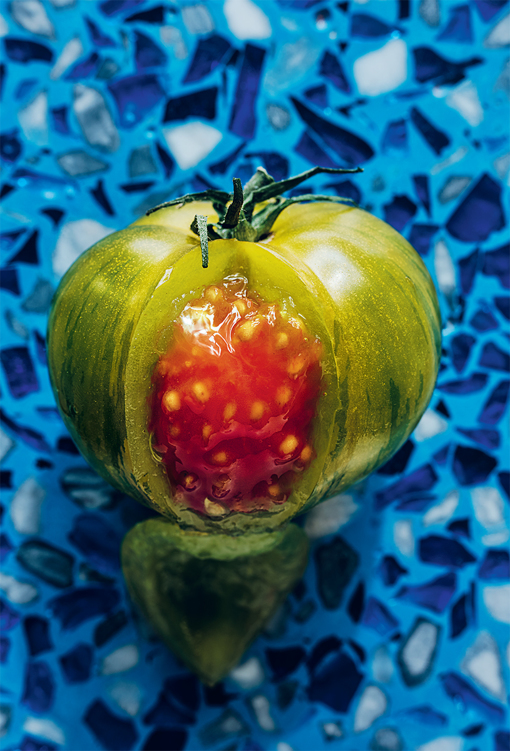
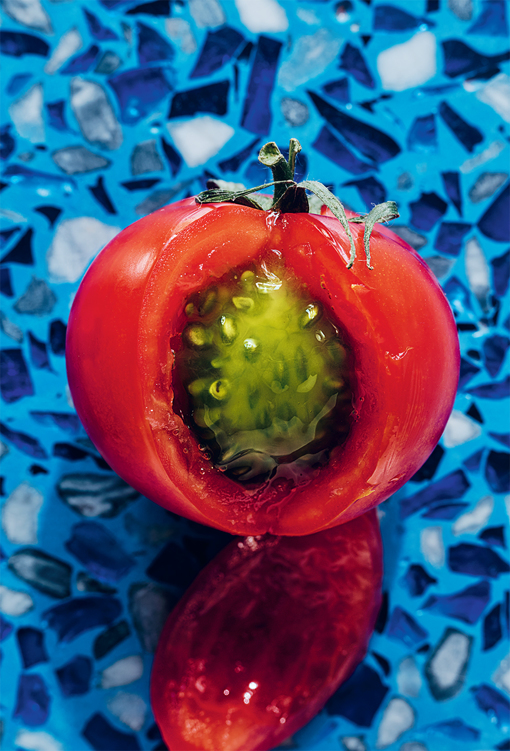 Is this a cookbook? In answer to that question, you might reasonably reply, its full of recipes so of course its a cookbook. But perhaps theres more than one way of looking at this. Increasingly, Ive come to see cooking in terms of quantum perspective which, for me, at its most basic, means anything we do can be viewed in an infinite number of ways: how we experience it is determined by what perspective we choose. Is this book a collection of culinary instructions? An insight into how I think about food? An encouragement to think about your own relationship with food? A visual feast? Maybe its all of these things and more. Maybe its something else completely.
Is this a cookbook? In answer to that question, you might reasonably reply, its full of recipes so of course its a cookbook. But perhaps theres more than one way of looking at this. Increasingly, Ive come to see cooking in terms of quantum perspective which, for me, at its most basic, means anything we do can be viewed in an infinite number of ways: how we experience it is determined by what perspective we choose. Is this book a collection of culinary instructions? An insight into how I think about food? An encouragement to think about your own relationship with food? A visual feast? Maybe its all of these things and more. Maybe its something else completely. Its up to you and your perspective. How did I come to think of gastronomy in quantum terms? To explain that, I need to take you on a journey. I fell in love with food and cooking at 16 when I visited a restaurant in Provence called LOustau de Baumanire. Thirteen years later I opened my own bistro. I had no training and no ambitions for Michelin stars, but I guess I have a restless curiosity and a head full of questions and possibly a somewhat obsessive personality. I followed my nose (and tongue and tastebuds) and got caught up in a culinary world of precision and measurement and minuscule increments and timings and temperatures.
Of endless testing and searching and refining. One of the catchphrases in my kitchen in the early days was Push on and I pushed, pushed, pushed. Michelin stars followed. And other things besides honorary degrees, a fellowship of the Royal Society of Chemistry, an OBE and the right to bear a coat of arms but somehow it was never enough. Push on. Yet. (Im still a work-in-progress.) Increasingly, though, I became unsatisfied with the search for perfection. (Im still a work-in-progress.) Increasingly, though, I became unsatisfied with the search for perfection.
It seemed like a creative cul-de-sac for me, at least and I realised I needed to change my relationship with food and cooking. Was I a chef, with all the baggage that entails, or, when it came down to it, was I simply a human who cooks because cooking is my way of connecting with other people and sharing my beliefs? A lot of those beliefs remained largely unexplored. Perhaps it was time to do something about that. One belief was sustainability not just of the planet but also of ourselves, since food can be a great stimulus to the mind and emotions and our interconnectedness with others. Another was mindfulness a word thats been overused and abused but, in essence, encourages us to be aware of our surroundings and the moment were in and to take pleasure from it. Food and cooking offer opportunities to do just that.
Ive long emphasised the multi-sensory nature of cuisine, but I was mainly focused on how this sensory experience influences our perception of flavour. Now I wondered whether it might have a pivotal influence on our outlook and well-being as well. Health and well-being had caught my attention in another way. Science has made us aware that our bodies contain a complex ecosystem of microbes that are known as the microbiome. And were fast discovering that these hundred trillion organisms play a part in our digestion, our immune system and even our mind and our mood. (As anyone whose nervousness before an exam has sent them to the toilet will already know.) And what we eat helps shape that ecosystem, so I became curious about what ingredients might have an effect on the microbiome. (As anyone whose nervousness before an exam has sent them to the toilet will already know.) And what we eat helps shape that ecosystem, so I became curious about what ingredients might have an effect on the microbiome.
These are among the ideas that have become important to me and, increasingly, have an influence on how I cook. Some of them, such as the role of water, are so complex they need a whole book devoted to them. (Riffle through the recipes that follow and youll see partly because Ive highlighted it just how essential water is, in a variety of forms, to almost any cooking you do.) But, where possible, youll find them woven into the recipes that follow whether its getting to grips with microbe-friendly fermentation or serving up soups to suit different moods. However, more crucial to me than all of these is one overarching idea: the sustenance and celebration of the human imagination. We are educating people out of their creative capacities our only hope for the future is to adopt a new conception of human ecology, one in which we start to reconstitute our conception of the richness of human capacity. These words have been a constant inspiration to me.
They come from a TED Talk entitled Do Schools Kill Creativity? (www.ted.com/talks/sir_ken_robinson_do_schools_kill_creativity) given by Sir Ken Robinson, a brilliant educationalist who devoted his life to reforming the education system. Its still, as far as I know, the most-watched TED Talk of all time, which is not surprising because Ken presents his ideas with the clarity of a philosopher and the comic timing of a stand-up. Ive watched it over and over and it still makes me laugh and makes me cry. His message is, in all senses, a universal one: our health, our well-being, our persistence on this planet depend on fostering the human imagination. Ken was, of course, focused on teaching not cooking, so what has this got to do with food? The answer is in his follow-up TED Talk, Bring on the Learning Revolution! (www.ted.com/talks/sir_ken_robinson_bring_on_the_learning_revolution) where he says we have built our education systems on a fast-food model, where standardisation is all. As a result, people opt out of education because it doesnt feed their spirit, it doesnt feed their energy or their passion.
Feed the spirit. Food metaphors are so often invoked when we talk about human growth and well-being, perhaps because consuming food and water is the most essential activity for our existence. Its a fundamental part of who we are. Therefore, it seems to me, it offers a natural opportunity to encourage our creative capacities. Weve got to do it on a daily basis anyway, so why not make cooking nourish our minds as well as our bodies? Maybe not every time sometimes youve just got to get food on the table but when we can. How could this be conveyed in a cookbook? It couldnt at least not in a conventional one, where the recipes are presented as a more-or-less inviolable set of instructions to be followed like a squaddie on a parade ground.
Font size:
Interval:
Bookmark:
Similar books «Is This A Cookbook?»
Look at similar books to Is This A Cookbook?. We have selected literature similar in name and meaning in the hope of providing readers with more options to find new, interesting, not yet read works.
Discussion, reviews of the book Is This A Cookbook? and just readers' own opinions. Leave your comments, write what you think about the work, its meaning or the main characters. Specify what exactly you liked and what you didn't like, and why you think so.

